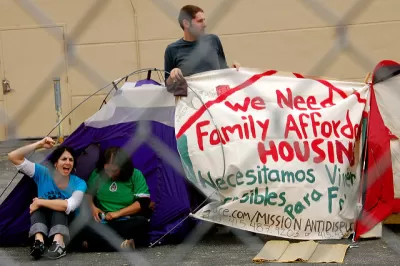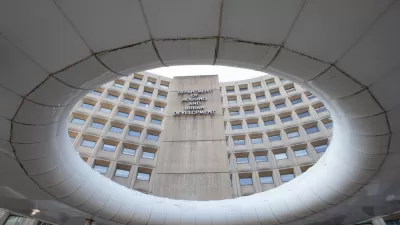With HUD seeking comments on a revamped version of the Affirmatively Furthering fair Housing Rule, now is a good time to seek lessons from the one state to attempt to implement the federal rule at the state level.

The Biden administration revamped the Affirmatively Furthering Fair Housing (AFFH) rule back in January of this year, with the hope of improving upon the model first adopted by the Obama administration in 2015 and eventually scrapped by the Trump administration in 2020. The rule is intended to strengthen the anti-discrimination efforts of the 1968 Fair Housing Act (FHA).
With that goal in mind, Natalie Spievack and Ben Metcalf write an article for the Terner Center for Housing Innovation at the University of California, Berkeley that digs into the efforts of California to accomplish many of the same outcomes.
“Despite the break in federal action on AFFH, California has been working to pursue AFFH goals since the 2015 rule was put into place, with a particular focus on creating racially and economically integrated communities,” according to the article. The state’s AFFH efforts have produced clear lessons about what it takes to incentivize affordable housing in “high-opportunity neighborhoods,” how to rezone for fair housing in the housing element processes required by state law, and codifying AFFH at the state level.
More analysis on California’s implementation of AFFH was published and shared by Planetizen in June 2022.
The source article, linked below, also notes that the U.S. Department of Housing and Urban Development is seeking comments about the newly revised AFFH rule until April 10.
FULL STORY: Reaffirming the Federal Commitment to Fair Housing: Lessons from California in Implementing AFFH

Maui's Vacation Rental Debate Turns Ugly
Verbal attacks, misinformation campaigns and fistfights plague a high-stakes debate to convert thousands of vacation rentals into long-term housing.

Planetizen Federal Action Tracker
A weekly monitor of how Trump’s orders and actions are impacting planners and planning in America.

In Urban Planning, AI Prompting Could be the New Design Thinking
Creativity has long been key to great urban design. What if we see AI as our new creative partner?

King County Supportive Housing Program Offers Hope for Unhoused Residents
The county is taking a ‘Housing First’ approach that prioritizes getting people into housing, then offering wraparound supportive services.

Researchers Use AI to Get Clearer Picture of US Housing
Analysts are using artificial intelligence to supercharge their research by allowing them to comb through data faster. Though these AI tools can be error prone, they save time and housing researchers are optimistic about the future.

Making Shared Micromobility More Inclusive
Cities and shared mobility system operators can do more to include people with disabilities in planning and operations, per a new report.
Urban Design for Planners 1: Software Tools
This six-course series explores essential urban design concepts using open source software and equips planners with the tools they need to participate fully in the urban design process.
Planning for Universal Design
Learn the tools for implementing Universal Design in planning regulations.
planning NEXT
Appalachian Highlands Housing Partners
Mpact (founded as Rail~Volution)
City of Camden Redevelopment Agency
City of Astoria
City of Portland
City of Laramie




























